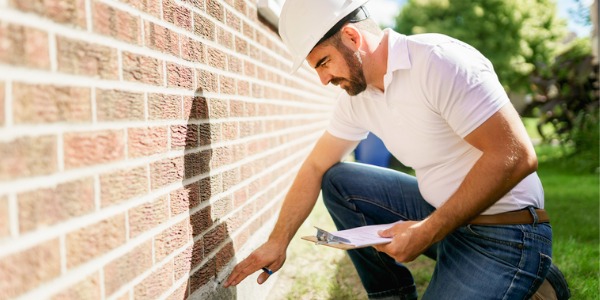What is a Building Inspector?
A building inspector examines buildings and construction sites to ensure they are safe, comply with building codes, and follow local laws. They check things like the structure, electrical systems, plumbing, and fire safety to make sure everything is built correctly. Their work helps prevent accidents, unsafe buildings, and costly mistakes.
Inspectors visit construction sites, new homes, and existing buildings at different stages of a project. They write reports, identify any issues, and may require fixes before work can continue or the building can be approved. By working closely with contractors, architects, and property owners, building inspectors help ensure that every building is safe for people to live or work in.
What does a Building Inspector do?

Duties and Responsibilities
The duties and responsibilities of a building inspector can vary depending on the location and type of construction project. Here are some common tasks of a building inspector:
- Conducting Inspections: Building inspectors check construction projects at different stages to make sure they follow building codes and approved plans. This includes inspecting foundations, framing, electrical systems, plumbing, heating and cooling systems, fire safety, and overall structural safety. They may also check accessibility features, energy efficiency, and other specific requirements.
- Reviewing Plans and Permits: Inspectors look over architectural and engineering plans, permit applications, and other documents to ensure they meet local building codes. They check that the design, materials, and construction methods follow safety standards and zoning rules.
- Identifying Code Violations: Inspectors find and document any code violations or problems. They report these issues to contractors, property owners, or government agencies. If needed, they can issue correction notices or stop-work orders and explain how to fix the problems.
- Providing Guidance and Education: Building inspectors help contractors, architects, and property owners understand building codes and construction requirements. They give advice and suggestions on how to follow the rules and meet standards safely.
- Reporting and Documentation: Inspectors keep detailed records of their inspections, findings, violations, and any actions taken. They prepare reports that can be used for legal purposes, future reference, or ongoing monitoring of building safety.
- Collaboration and Communication: Inspectors work closely with contractors, architects, engineers, and other professionals. They provide updates on inspections, answer questions, and make sure required changes are properly implemented.
- Continuing Education and Professional Development: Building codes change over time, so inspectors keep learning through training, seminars, and professional development. This helps them stay up to date and provide accurate guidance to ensure safety and compliance.
Types of Building Inspectors
There are various types of building inspectors, each specializing in different aspects of construction and building regulations:
- Fire Inspector: Evaluates fire safety systems, including alarms, sprinklers, fire escapes, and fire-rated construction. They ensure compliance with fire codes and regulations.
- Electrical Inspector: Specializes in inspecting electrical systems and installations to verify they meet safety codes and proper wiring standards.
- Plumbing Inspector: Focuses on plumbing systems, including pipes, fixtures, and drainage. They ensure proper installation and compliance with plumbing codes.
- Mechanical Inspector: Inspects heating, ventilation, air conditioning (HVAC) systems, and other mechanical equipment, checking for safety, proper installation, and compliance with mechanical codes.
- Accessibility Inspector: Checks buildings for compliance with accessibility standards, such as the ADA in the U.S., including ramps, doorways, signage, and other features to accommodate individuals with disabilities.
- Energy Code Inspector / Energy Efficiency Inspector: Assesses buildings for energy efficiency and compliance with energy codes, including insulation, lighting, and HVAC performance.
- Code Enforcement Inspector: Enforces building codes, zoning laws, and local ordinances. They investigate complaints, identify violations, and work with property owners and contractors to ensure compliance.
What is the workplace of a Building Inspector like?
A building inspector’s workplace is a mix of offices and construction sites. They spend time reviewing building plans, permits, and regulations in an office setting to make sure projects comply with local laws and codes. This work involves reading blueprints, checking documentation, and preparing reports to communicate their findings.
Much of a building inspector’s day is spent visiting construction sites, homes, or commercial buildings at different stages of work. On site, they examine structures, electrical systems, plumbing, and safety features to ensure everything is built correctly. They may also talk with contractors, architects, or property owners to explain any issues or required changes.
Building inspectors often work regular business hours, but some projects may require evening or weekend visits. They travel frequently between locations and need to be comfortable walking around active construction sites. Safety gear like hard hats, reflective vests, and sturdy shoes is typically required.
Frequently Asked Questions
Construction and Trade-Related Careers and Degrees
Careers
- Building Inspector
- Carpenter
- Concrete Worker
- Construction Engineer
- Construction Manager
- Construction Worker
- Drywall Installer
- Electrician
- Forklift Operator
- Heavy Equipment Operator
- HVAC Technician
- Ironworker
- Mason
- Painter
- Paving Stone Installer
- Pipefitter
- Pipelayer
- Plasterer
- Plumber
- Rigger
- Roofer
- Sheet Metal Worker
- Steamfitter
- Stone Cutter
- Tile and Marble Setter
- Welder
Degrees
- Building Inspection
- Carpentry
- Construction Engineering
- Construction Management
- Electrical Engineering Technology
- Electrical Technology
- Heavy Equipment Operation
- Masonry
- Plumbing
- Refrigeration, Air Conditioning, Heating and Gas Technology
- Welding
Real Estate-Related Careers and Degrees
Careers
- Building Inspector
- Buyer's Agent
- Commercial Real Estate Agent
- Construction Manager
- Dual Agent
- Green Real Estate Agent
- Luxury Real Estate Agent
- Military Relocation Professional
- New Construction Real Estate Agent
- Real Estate Agent
- Real Estate Appraiser
- Real Estate Auctioneer
- Real Estate Broker
- Real Estate Investment Agent
- Real Estate Lawyer
- Relocation Real Estate Agent
- Residential Real Estate Agent
- Seller's Agent
- Seniors Real Estate Specialist
- Vacation and Second Home Agent
Degrees